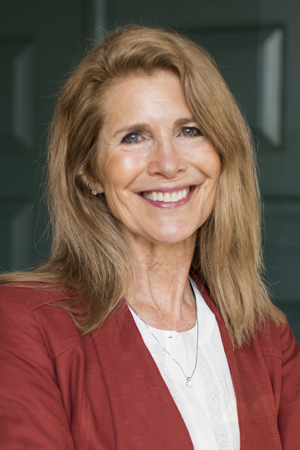Many of our donors who are over age 70 ½ must take an annual required minimum distribution (RMD) from their tax-advantaged retirement plans before year-end.
The government established this rule to ensure income taxes get paid from tax-deferred retirement plan contributions, such as IRAs, 401(k)s and 403(b)s. To calculate the RMD, a formula based on life expectancy is applied to your retirement plan balance.
Qualified Charitable Distributions
Because many taxpayers are faced with this income tax burden, three years ago Congress enacted a law allowing a taxpayer to donate up to $100,000 directly to charity and bypass his or her taxable income.
Although federal law does not permit donor-advised funds to accept this qualified charitable distribution (QCD), a gift of this type does represent an opportunity for donors to support scholarship, field-of-interest or designated funds, including programs and funds at The San Diego Foundation.
Our first QCD gift from an enthusiastic donor needed some special attention.
His $100,000 RMD was transferred directly from his IRA custodian to The San Diego Foundation.
We worked with the donor to review his goals and make the best decision about his RMD. By year-end, he needed to take the RMD or pay a 50 percent penalty – a hefty $50,000 in his case.
We reviewed our programs and funds, such as our Community Scholarships Program and our Opening the Outdoors Program which would be eligible for a QCD.
Because this donor and his family were committed to the charitable causes of their donor-advised fund for both current causes and their family legacy, they wanted to know the result of giving to their donor-advised fund compared to donating the QCD to a different program or fund.
We recommended that the donor’s Certified Public Accountant (CPA) estimate the overall tax bill for each type of gift. This involved calculating the donor’s adjusted gross income (AGI) both with the $100,000 RMD added and with the $100,000 excluded.
Although the tax bill was $1,235 higher if the donor were to withdraw his RMD as taxable income because of the 3.8 percent Obama Care Tax of 2013 (also called Net Investment Income Tax NIIT), the donor determined this extra tax was worth paying to accomplish his goal.
Ultimately, he withdrew the RMD as taxable income and contributed directly to his donor-advised fund.
Tax Cuts and Jobs Act
With the new Tax Cuts and Jobs Act effective this year, this RMD vs. QCD decision is more complex. Our expert staff can help you choose which is best for you.
The higher standard deduction and limited State and Local Tax (SALT) deduction make it more difficult to deduct charitable expenses.
A couple will need $24,000 of deductions to itemize ($12,000 for individuals), which can be a combination of mortgage interest (on debt up to $750,000), and California income tax and property tax (taxes not to exceed $10,000 for both single and married filing jointly) to deduct the charitable donation from income.
This year, the same donor referenced above has a $100,00 RMD and is able to itemize his deductions. He can again choose to fund his donor-advised fund and deduct the charitable gift to accomplish his goal.
For a donor who has no mortgage debt and a low RMD to deduct, however, a QCD may be the answer to being both charity-generous and tax-thrifty.
Click here to see a list of The San Diego Foundation programs and funds that can accept QCDs.
Please also consider contacting our Development & Stewardship Team at (619) 677-6252 or donorservices@sdfoundation.org to review your charitable and income tax planning.
As part of your team of advisors, we can help you determine the best way to take your RMD and meet your charitable goals under the many complexities of our tax laws.
Contact our Development & Stewardship Team today!
Oops! We could not locate your form.
About Leslie Klein, CFP®




